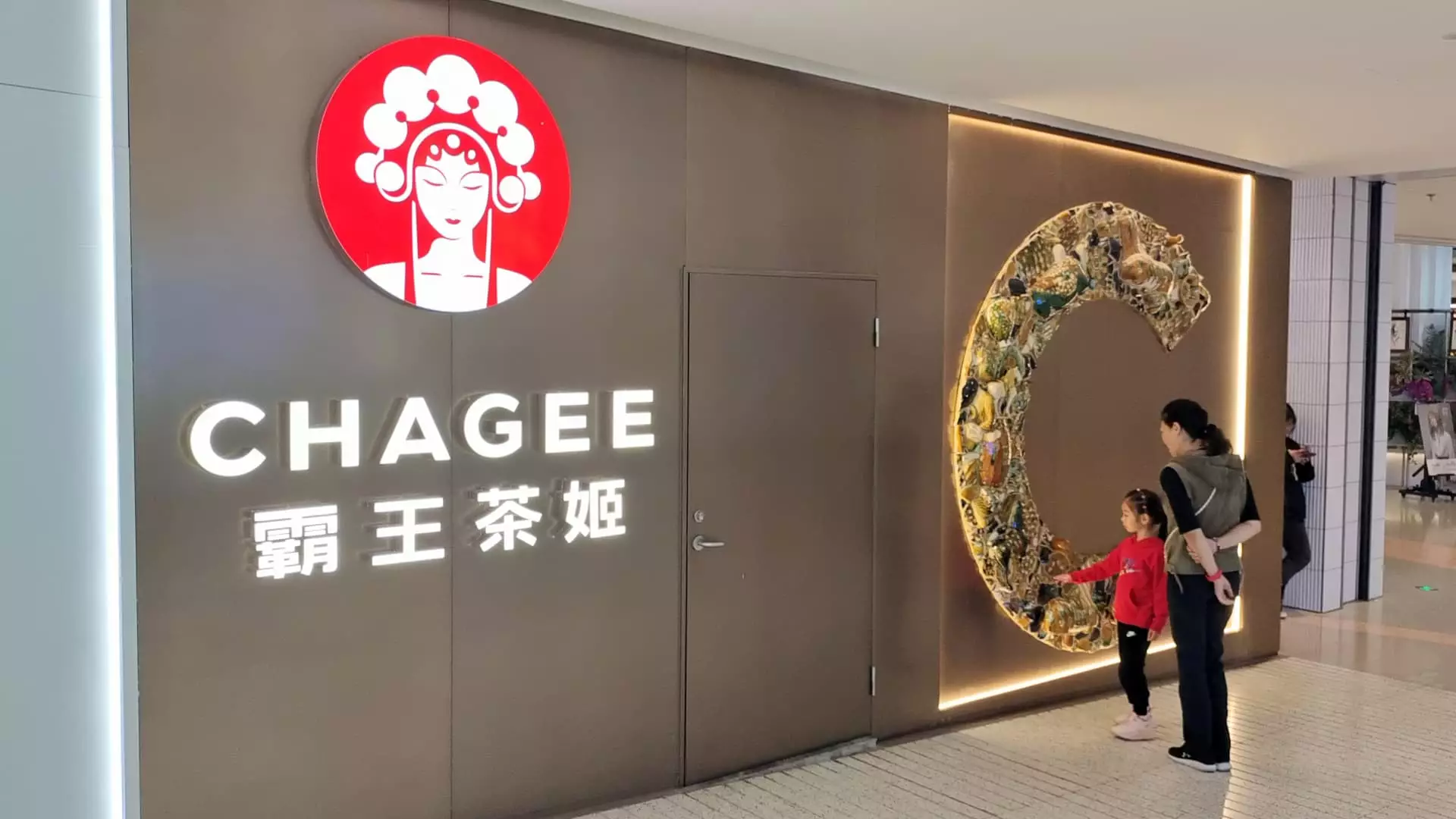Chagee, a rising star in the realm of tea, made waves in the financial world with its public market debut, witnessing a staggering 15% increase on its first day. This leap in value—opening at $33.75 per share—reflects not just a moment of financial triumph but also a powerful message amidst ongoing trade disputes between the United States and China. The company’s success, especially during such precarious times, begs a deeper inquiry into what it signifies for the future of Sino-American relations and global commerce.
Founded in 2017, Chagee’s rapid expansion, boasting over 6,400 teahouses across several Southeast Asian countries, is nothing short of impressive. The chain plans to launch its first U.S. location at the Westfield Century City mall in Los Angeles, a critical move that highlights both ambition and resilience. And yet, we must question, is this audacity truly justified given the current geopolitical climate?
The Financial Landscape: Resilience in Adversity
Chagee’s pricing strategy for its initial public offering (IPO) set the stage for its swift rise. Priced at $28—a fine balance at the higher end of expectations—the company raised a jaw-dropping $411 million, valuing itself at an eye-popping $5 billion. However, as the initial enthusiasm waned, the stock’s afternoon slump reveals market volatility and investor caution. Is our appetite for Chinese enterprises on U.S. exchanges waning under the weight of political tensions?
The broader economic scenario encapsulates a troubled landscape for Chinese companies in America. With the number of listings on major U.S. exchanges falling 5% from January 2023 to January 2024, Chagee’s IPO can be seen as an extraordinary outlier rather than a standard trend. Amid draconian tariffs and a brewing trade war initiated by aggressive stances from the U.S. government, one must ask: Is this timing recklessly optimistic, or could it, conversely, signal a missed opportunity for collaboration?
Consumer Behavior: Changing Tastes and Preferences
In a world where consumer behavior is increasingly leaning towards health and wellness, Chagee’s tea offerings cater to a sophisticated palate that values both tradition and innovation. Founder and CEO Junjie Zhang drew inspiration from the juggernaut of international coffee chains, recognizing the prominence of coffee culture while positioning tea as an equally lucrative alternative. This strategic pivot taps into the expanding market of health-conscious consumers who seek comforting yet trendy options. Yet, this raises a question—will Chagee’s alluring branding stand the test of discerning American preferences?
Moreover, as China entrenches its footing as Starbucks’ second largest market, Chagee’s launch in the U.S. is not merely a quest to replicate success—it is a challenge to redefine market norms. The stakes are high, but for a brand with such an exhilarating growth trajectory, the gamble may well position Chagee as a formidable competitor against established titans.
Chagee’s journey is at a critical juncture, emblematic of broader themes in global commerce and cultural exchange. It serves as a test case for how resilience and ambition can flourish even amidst economic adversity and political strife. As the company stands poised to make an indelible mark on the American market, the world will closely watch whether it can turn initial enthusiasm into long-term success, or whether it will succumb to the very tensions it seeks to navigate. Indeed, this saga is filled with complexities that speak not just to the ambitions of a tea chain, but to the future of international business as a whole.

